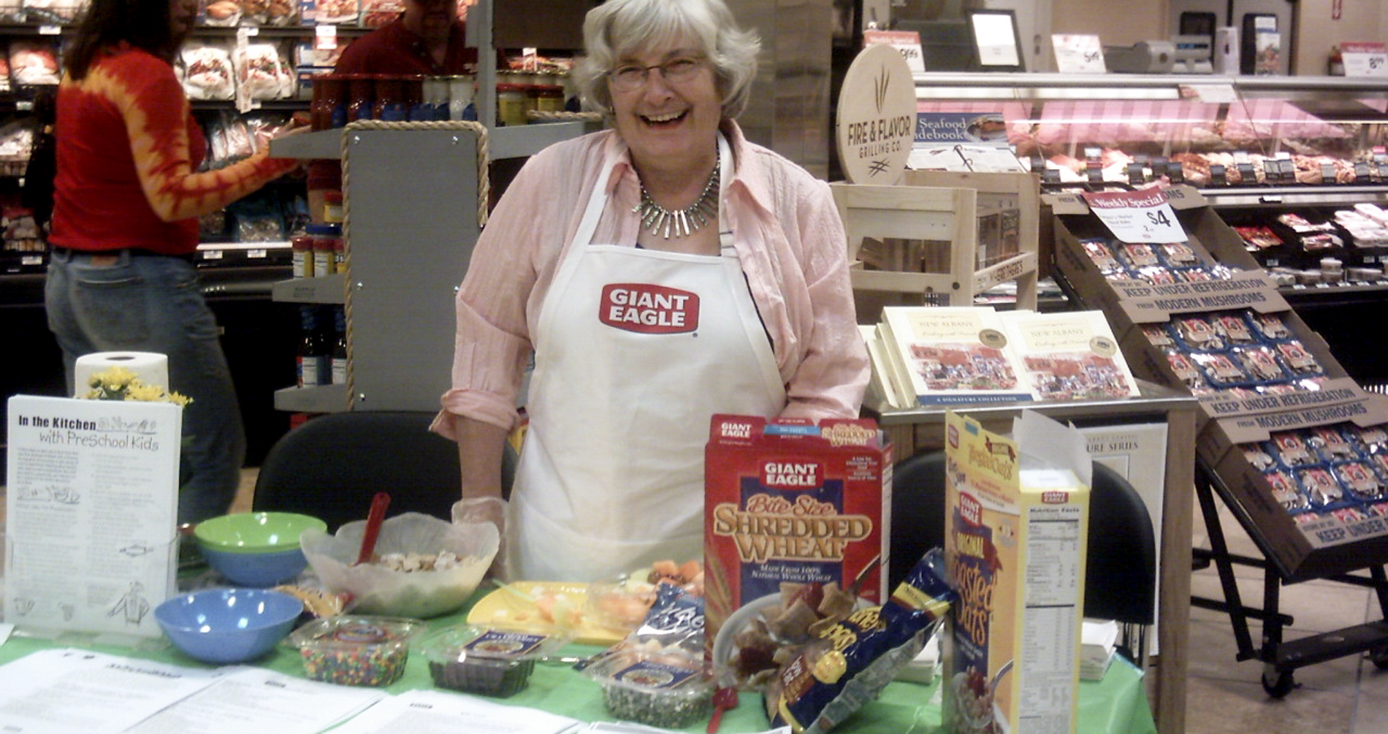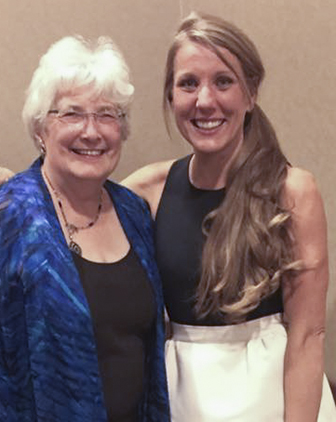
Subscribe to Pittwire Today
Get the most interesting and important stories from the University of Pittsburgh.Dietitian Wins Lifetime Achievement Award
Health-conscious grocery shoppers may have easy access to nutritional information now in the digital age; but before the internet, there was Judy Dodd.
Dodd has been helping to get health and nutrition information to Pittsburgh-area shoppers for three and a half decades as an assistant professor of nutrition and dietetics, the science of applying the principles of nutrition to the diet, at the University of Pittsburgh School of Health and Rehabilitation Sciences. For two decades during that timeframe, she was a food and nutrition adviser to Giant Eagle, Inc. These efforts recently earned her the Jane Andrews Lifetime Achievement Award in Retail Dietetics by the Retail Dietitians Business Alliance.
“I was very surprised, but it was a real honor,” said Dodd, who is a past president of the Academy of Nutrition and Dietetics. “My work in retail dietetics is something I truly love, because I could actually get in the aisle and talk to people.”
Dodd first arrived at Pitt in 1982 as a graduate student in education after receiving her bachelor’s degree in foods and nutrition from Carnegie Mellon University. Her interest in nutrition came from her parents.
“I grew up in a family with a mother who was obsessed with the idea of learning more about nutrition, and she didn’t even have a high school education,” Dodd said.
While completing her studies at Pitt, she worked for the Allegheny County Health Department Nutrition Services’ Women, Infants and Children program.
The program worked with Giant Eagle Inc. on a grant, funded in part by the U.S. Department of Agriculture, to better educate the general public on nutrition and how people can shop for healthier foods at grocery stores. This included hosting nutrition booths and displays, giving educational materials to consumers and providing a direct call line to customers to talk with registered dietitians.
“She is a trailblazer in dietetics and devoted to the profession,” said Caroline Passerrello, a former student and Giant Eagle colleague of Dodd’s and adjunct instructor in Pitt’s Dietitian Nutritionist Program. “She’s really ethically driven and leads by example.”
The team also held food demonstrations, provided recipes and worked with Giant Eagle staff to do aisle education, all before nutrition information was available online. Today, however, Dodd emphasizes that where people get their information is important to making healthy decisions with food selection.
“Today, we have 24/7 access to people who think they’re qualified to talk about nutrition but don’t have the background. There are some real consequences to what people are doing in nutrition,” she said. “Along with that, there’s also confusion about food and portion size. If you go to a restaurant and get a spaghetti dinner, you may be getting more than one serving of spaghetti and meatballs. Instead, you may be getting three times the recommended serving size. It’s not that you can’t eat it but is more, ‘Are you counting it in your daily servings?’ We think we’re eating healthy, but we may be eating more than our age, gender or activity levels allow us to.”
Dodd also says people should look for a more plant-based diet for their meals as stated by the Dietary Guidelines for Americans.
“This doesn’t mean we should go full vegetarian; what it means is we need to include more fruits and vegetables and consider how we prepare it to retain the quality of nutrients, like what happens when we put food in a deep-fat fryer versus cooking them in more healthful ways,” she said.
The work Dodd did with the county health department opened the door for nutrition and food education in the Pittsburgh region and this built relationships that lasted long after the grant ended.
We have 24/7 access to people who think they’re qualified to talk about nutrition but don’t have the background. There are some real consequences to what people are doing in nutrition.
Judy Dodd, assistant professor of nutrition and dietetics
Dodd, while teaching at Pitt, became a food and nutrition adviser for Giant Eagle in 1994, a title she would hold until 2014.
“The early years I did it all; my role was to work with the developers of the kiosks, adjust and test recipes featured and market the program in stores,” Dodd said. “This meant checking nutrition information, reducing sodium or added sugar or adjusting for allergies since the labels and the ingredients were still more mystery than fact.”
While there, Dodd led the company’s Be A Smart Shopper Program and took on the role of corporate nutritionist, building opportunities for a staff of registered dietitians serving stores in Pennsylvania, Ohio, West Virginia and Maryland. Her team later worked with Giant Eagle’s pharmacy division to introduce workshops for people with diabetes and allergies. It also introduced nutrition programs geared toward children, including curricula for local schools.
“We wanted to grow the presence of dietitians in the supermarket, to take it from just Judy consulting and advising with them to actually having readily available dietitians in select stores and at community events,” said Passerrello. “Basically, it was to make nutritional information accessible to everyone. People want to know more, but we need to help them understand what is accurate.”
Today, Dodd teaches at Pitt and provides guest lectures for classes in the Department of Sports Medicine and Nutrition, Osher Lifelong Learning Institute and the community.
Dodd is also a volunteer leader for the local affiliate of the American Heart Association, Let’s Move Pittsburgh and the Pennsylvania Nutrition Education Network and Action for Healthy Kids.



